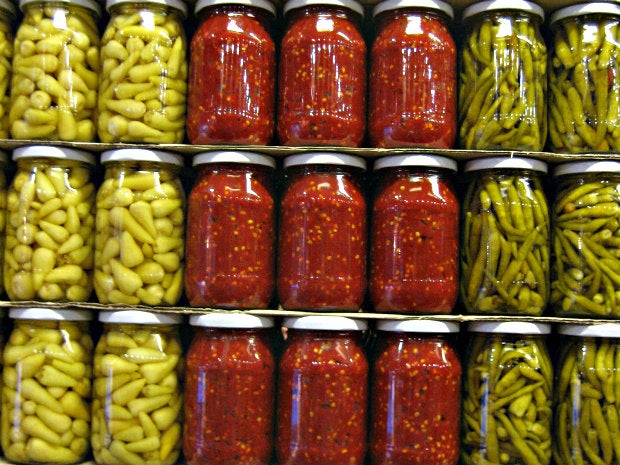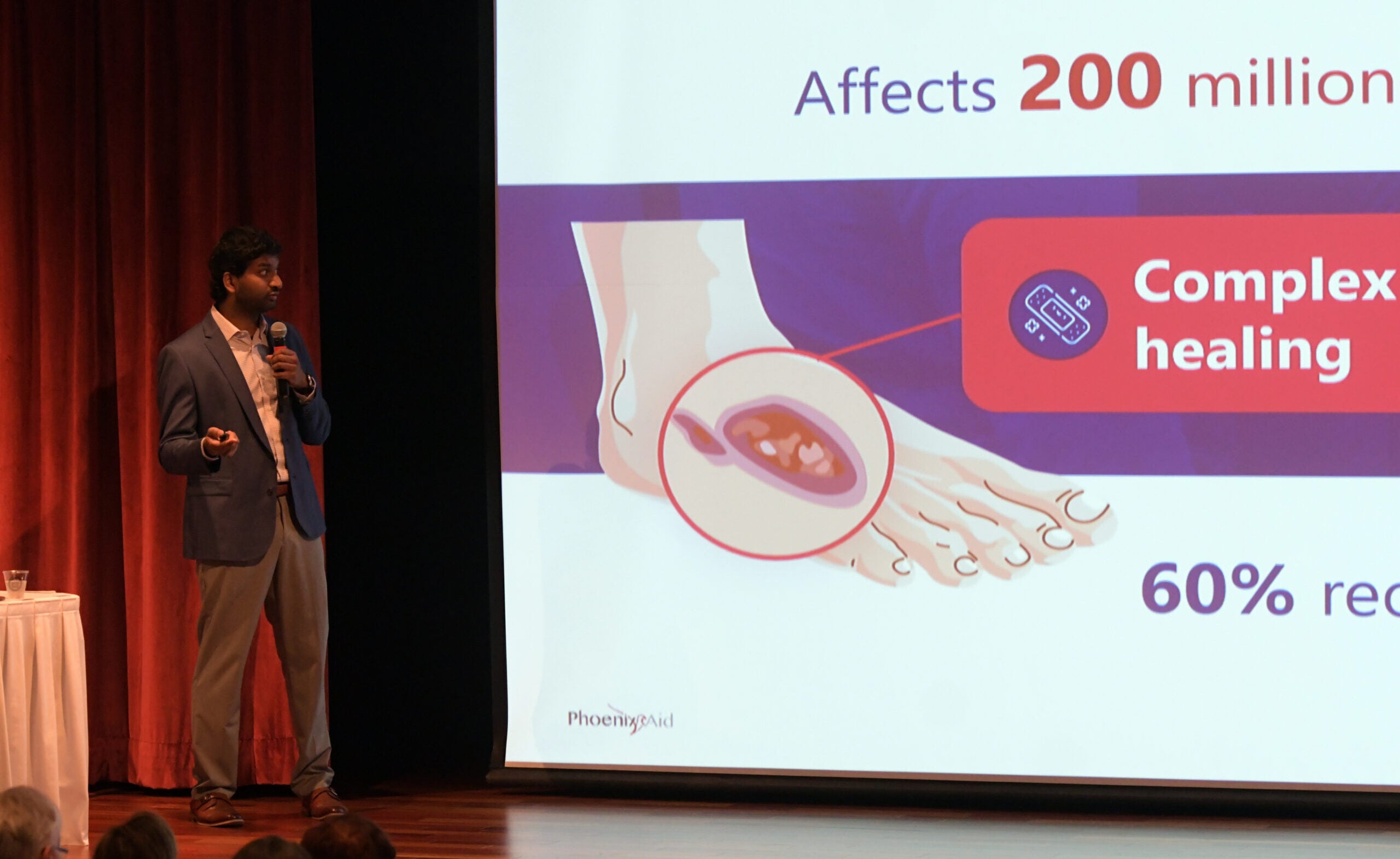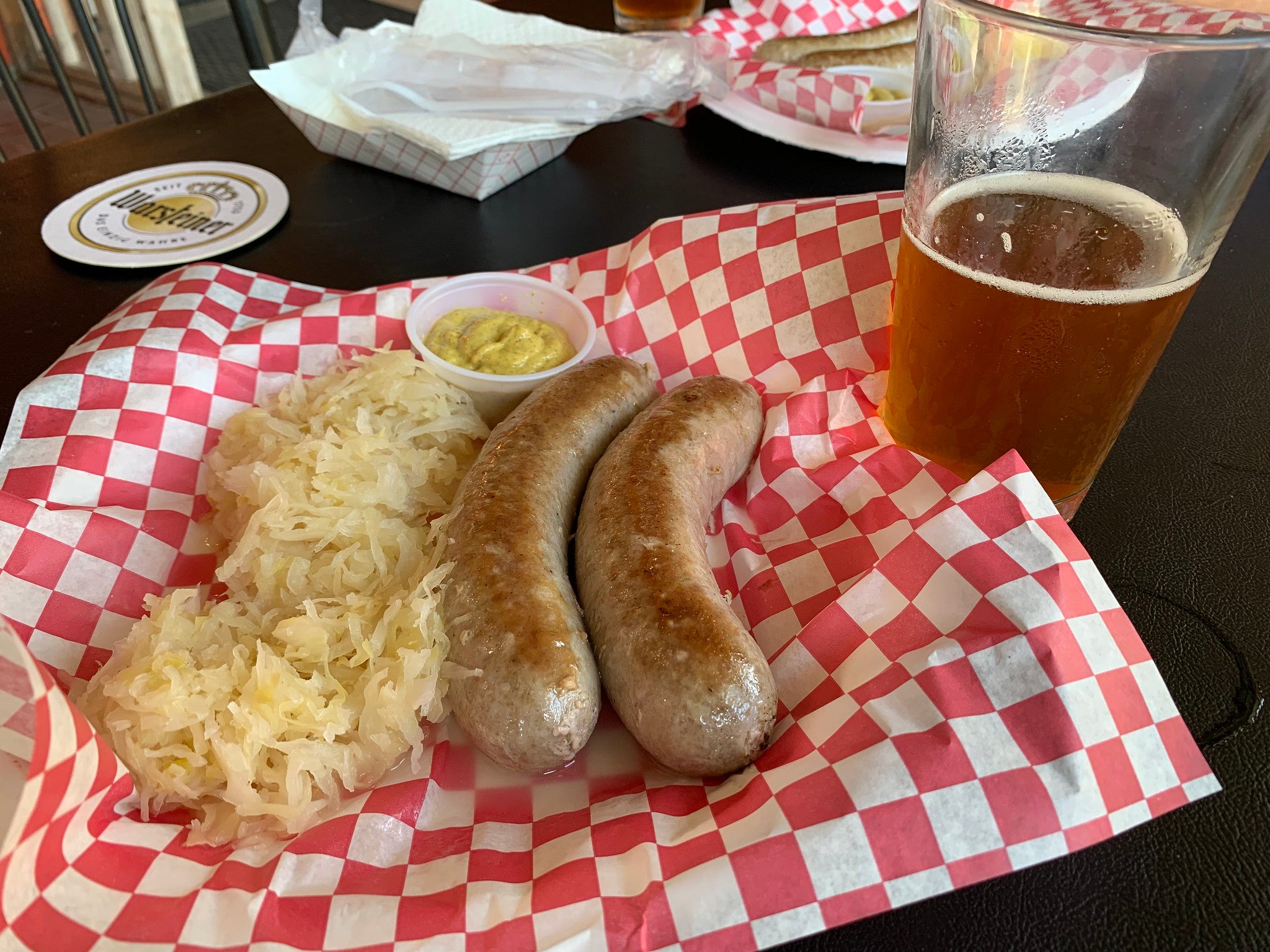Canning is a practice sealed into Wisconsin’s soul — the state has a “pickle bill” on the law books after all.
As Milwaukee County master food preserver Christina Ward explained on WPR’s “Central Time,” the possibilities for pickling are bountiful. But, Wisconsinites shouldn’t be overconfident when preserving their favorite summer produce.
Listen to Christina Ward on “Central Time”
News with a little more humanity
WPR’s “Wisconsin Today” newsletter keeps you connected to the state you love without feeling overwhelmed. No paywall. No agenda. No corporate filter.
Whether you’re an old hand at canning or just taking it up after overdoing it with farmers’ markets and CSA boxes, it’s crucial to take extra care to keep those summery flavors in and dangerous microbes out. Safe canning means staying on top of a host of variables, from temperature to elevation to the acidity of the food.
Clostridium botulinum can’t survive in highly acidic environments — those with a pH level of 4.6 or lower — but the bacterium’s spores are extremely heat-resistant, so low- and high-acid foods require different canning processes. Granted, botulism is extremely rare in the U.S. According to the U.S. Centers for Disease Control and Prevention, an average of 145 cases per year are reported, with improperly home-canned food causing only a fraction of those cases.
But, to keep a serious illness rare, and do Wisconsin’s long canning tradition proud, start with a few simple primers from Barbara Ingham, a University of Wisconsin-Madison professor of food science and a food science specialist with UW-Extension.
As Ingham explained last summer on WPR’s “The Larry Meiller Show,” anyone embarking on a canning adventure needs to keep several key things in mind: the acidity of the foods to be preserved, the difference between pressure cookers and pressure canners, equipment maintenance and testing, and keeping up with evolving canning recipes.
Listen to Barbara Ingham on “The Larry Meiller Show”
Beyond those fundamentals, Ingham has created guides to more specific preserving pursuits, from canning salsa safely to the finer points of canning lids to starting a home-canning business.
Learn more at UW-Extension.
This report was produced in a partnership between Wisconsin Public Radio, PBS Wisconsin and the University of Wisconsin Cooperative Extension. @ Copyright 2025, Board of Regents of the University of Wisconsin System and Wisconsin Educational Communications Board.





